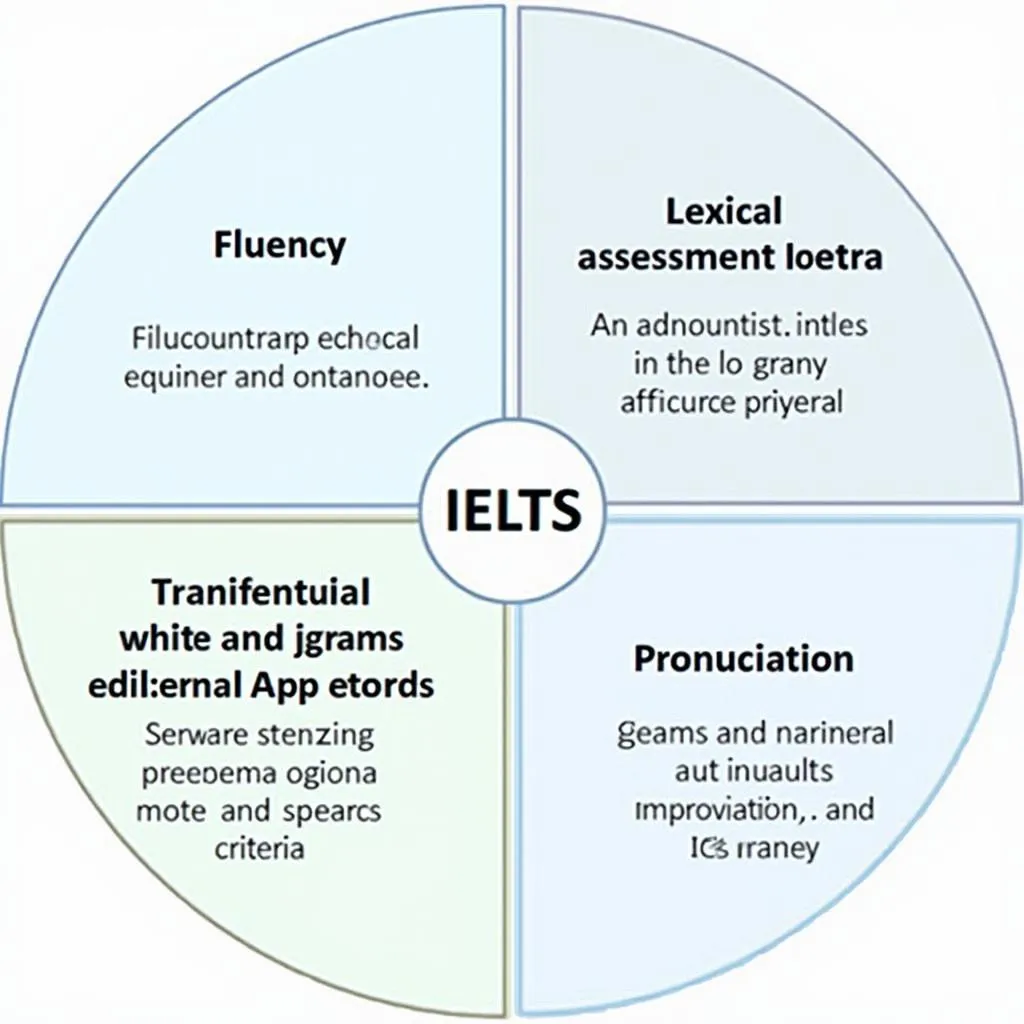Understanding IELTS Speaking Fluency
IELTS Speaking fluency is a crucial component of the IELTS Speaking test. It refers to the ability to speak smoothly, coherently, and without unnecessary pauses or hesitations. Improving your fluency can significantly impact your overall IELTS Speaking score and boost your confidence in English communication.
Why Fluency Matters in IELTS Speaking
Fluency is one of the four criteria used to assess your performance in the IELTS Speaking test, alongside Lexical Resource, Grammatical Range and Accuracy, and Pronunciation. Examiners look for candidates who can express themselves clearly and effortlessly, maintaining a steady flow of speech throughout the test.

Effective Methods to Improve IELTS Speaking Fluency
1. Practice Regular Speaking Exercises
Consistent practice is key to improving your speaking fluency. Set aside time each day for speaking exercises, even if it’s just for 15-20 minutes.
- Talk to yourself: Discuss various topics aloud, as if you’re having a conversation with someone else.
- Record yourself: Use your smartphone to record your speech and listen back to identify areas for improvement.
- Use IELTS speaking topics: Practice answering common IELTS Speaking questions to familiarize yourself with the test format.
2. Expand Your Vocabulary
A rich vocabulary allows you to express your thoughts more easily and reduces the likelihood of pauses while searching for words.
- Learn new words in context: Instead of memorizing isolated words, learn them through sentences and real-life situations.
- Use vocabulary apps: Applications like Quizlet or Anki can help you learn and review new words regularly.
- Read extensively: Expose yourself to a variety of English texts to encounter new words and phrases in different contexts.
3. Use Filler Words and Phrases Strategically
While excessive use of filler words can detract from your fluency, strategic use can help maintain a natural flow of speech.
- Learn common fillers: Phrases like “Well,” “You see,” or “In fact” can give you time to gather your thoughts.
- Practice using discourse markers: Words like “However,” “Moreover,” or “On the other hand” can help you transition between ideas smoothly.
- Avoid overuse: Use fillers sparingly and naturally to maintain coherence in your speech.
4. Improve Your Pronunciation
Clear pronunciation contributes to overall fluency by making your speech more comprehensible and reducing the need for repetition.
- Focus on problematic sounds: Identify sounds that are challenging for you and practice them regularly.
- Use pronunciation apps: Tools like ELSA Speak or Google Pronounce can help you perfect your pronunciation.
- Shadow native speakers: Listen to and imitate native English speakers to improve your intonation and rhythm.
5. Engage in English Conversations Regularly
Real-life practice is invaluable for improving your speaking fluency.
- Find a language exchange partner: Use platforms like Tandem or HelloTalk to connect with native English speakers.
- Join English speaking clubs: Participate in local or online English conversation groups.
- Attend English language events: Look for English-language meetups or events in your area.
6. Use the Shadowing Technique
Shadowing involves listening to native English speakers and repeating what they say in real-time.
- Choose appropriate materials: Use podcasts, TED Talks, or IELTS Speaking sample answers.
- Start with short segments: Begin with 30-second clips and gradually increase the duration.
- Focus on intonation and rhythm: Pay attention to the speaker’s stress patterns and sentence flow.
7. Practice Timed Speaking
Simulate the IELTS Speaking test conditions to improve your ability to speak fluently under pressure.
- Use a timer: Set a timer for 1-2 minutes and speak on a given topic without stopping.
- Cover all parts of the test: Practice answering questions for all three parts of the IELTS Speaking test.
- Seek feedback: Ask a teacher or proficient English speaker to evaluate your timed speaking practice.
Important Considerations for Improving Fluency
Embrace Mistakes
Don’t let the fear of making mistakes hinder your progress. Embrace errors as learning opportunities and continue speaking even when you’re unsure.
Focus on Content Over Perfection
While accuracy is important, prioritize expressing your ideas clearly and maintaining a steady flow of speech. Fluency often improves naturally as you become more comfortable speaking.
Be Patient and Consistent
Improving fluency takes time and consistent effort. Set realistic goals and celebrate small improvements along the way.
Next Steps in Your IELTS Speaking Journey
Now that you’re equipped with effective methods to improve your IELTS Speaking fluency, it’s time to put them into practice. Start by incorporating these techniques into your daily routine and tracking your progress over time. Remember, consistent practice is key to achieving fluency in English speaking.
Consider taking IELTS Speaking practice tests to assess your improvement and identify areas that may need further attention. Additionally, explore our other IELTS resources to enhance your overall test preparation strategy.
By dedicating time and effort to these IELTS Speaking fluency improvement methods, you’ll be well on your way to achieving your desired score and confidently expressing yourself in English.